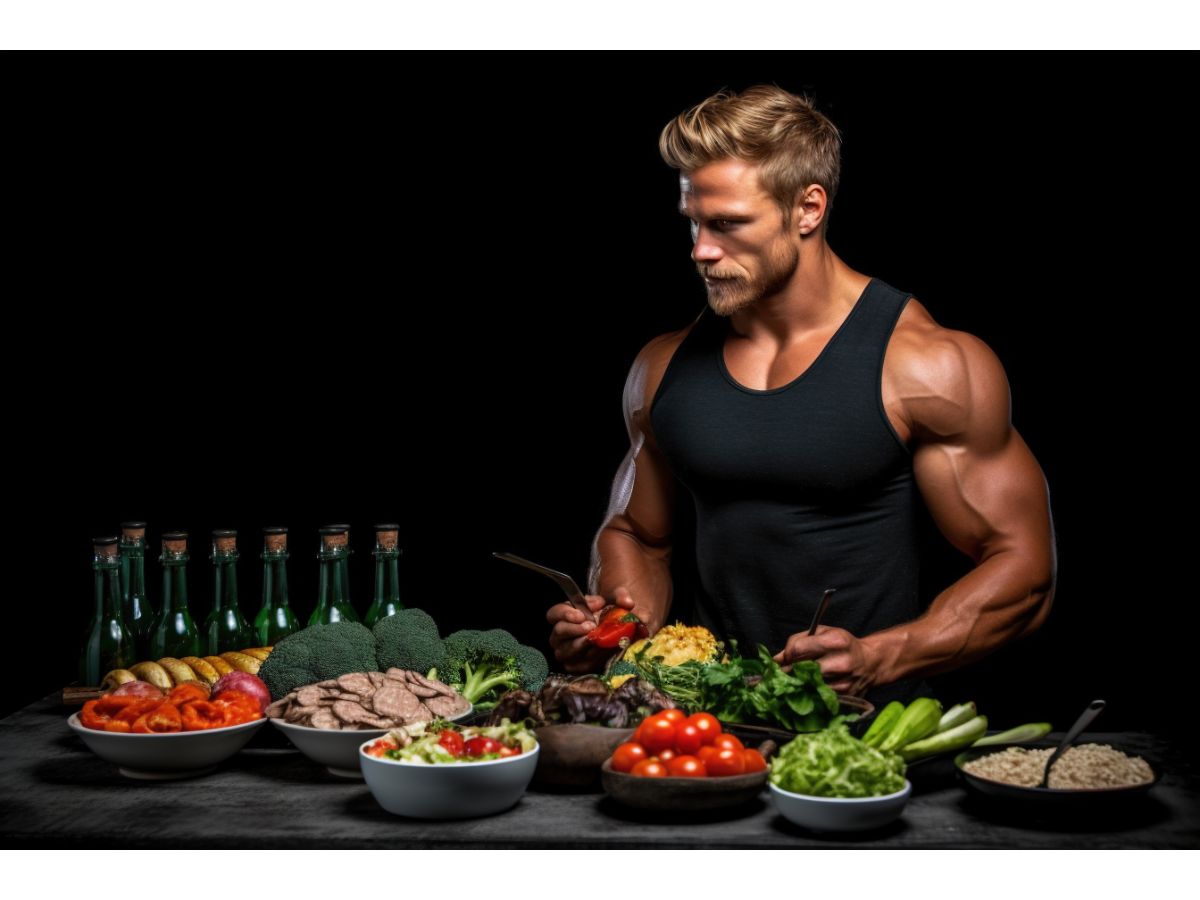Bulking is a popular phase in fitness and bodybuilding where the goal is to gain muscle mass by eating in a calorie surplus and following a structured training program. However, if done incorrectly, bulking can lead to excessive fat gain, poor health outcomes, and wasted time. This guide will teach you how to bulk properly and safely, ensuring maximum muscle growth with minimal fat.
What is Bulking?
Bulking is the process of consuming more calories than your body burns to promote muscle growth. This surplus of energy gives your body the resources it needs to build new muscle tissue after resistance training. Typically, bulking is followed by a “cutting” phase to reduce excess fat while preserving muscle.
There are two main types of bulking:
- Clean Bulking: Focuses on eating nutrient-dense, whole foods with a controlled calorie surplus to minimise fat gain.
- Dirty Bulking: Involves eating anything and everything to gain weight quickly—often resulting in excess fat gain.
For most people, clean bulking is the safest and most effective method.
How to Bulk Properly
1. Calculate your calorie intake
Start by finding your maintenance calories (the amount of calories you need to maintain your weight). Add a small surplus of 250–500 calories per day. This range is enough to promote muscle growth without significant fat gain.
You can use online calculators or the Mifflin-St. Jeor equation to estimate your daily calorie needs.
2. Focus on macronutrients
Balanced macronutrients are key:
- Protein: 1.6–2.2 g per kg of body weight daily to support muscle repair.
- Carbohydrates: Fuel your workouts. Aim for 3–5 g per kg of body weight.
- Fats: Essential for hormones. Around 20–30% of total calories should come from healthy fats (nuts, olive oil, avocado, fatty fish).
A sample split could be 40% carbohydrates, 30% protein / 30% fat.
3. Strength Training
Eating more calories won’t lead to muscle growth without resistance training. Stick to a progressive overload routine—gradually increasing the weight, reps, or sets you do over time.
Focus on compound exercises like:
- Squats
- Deadlifts
- Bench Press
- Overhead Press
- Pull-Ups / Rows
Aim for 4–6 workouts per week, depending on your recovery and experience level.
4. Track your progress
Weigh yourself weekly and take body measurements (chest, arms, waist, legs). If you’re gaining more than 0.5–1 lb (0.25–0.5 kg) per week, you may need to reduce your calorie surplus to avoid excess fat gain.
Safety Tips for Bulking
Bulking isn’t just about eating more food. To bulk safely, keep these tips in mind:
- Choose Quality Foods: Prioritise lean proteins, whole grains, fruits, vegetables, nuts, and healthy fats over processed junk.
- Stay Hydrated: Proper hydration supports recovery and training performance.
- Don’t Skip Cardio: Engaging in light cardio 2–3 times per week helps maintain cardiovascular health and minimises fat gain.
- Get Enough Sleep: Aim for 7–9 hours per night to optimise muscle recovery and hormone balance.
- Monitor Your Health: If you have preexisting conditions or feel unwell, consult a doctor or a qualified nutritionist.
Bulking Food Chart: What to Eat vs What to Avoid
| ✅ Foods to Eat (Clean Bulking) | ❌ Foods to Avoid (Dirty Bulking / Unhealthy) |
|---|---|
| Lean Proteins: Chicken breast, turkey, lean beef, eggs, Greek yogurt, tofu, tempeh | Processed meats: bacon, sausages, deli meats |
| Complex Carbs: Brown rice, quinoa, oats, sweet potatoes, whole grain bread/pasta | Refined carbs: white bread, pastries, sugary cereals |
| Healthy Fats: Avocados, olive oil, nuts, seeds, fatty fish (salmon, sardines) | Trans fats: margarine, fried fast food, packaged snacks |
| Legumes: Lentils, black beans, chickpeas, kidney beans | Canned beans with added salt/sugar |
| Vegetables: Broccoli, spinach, kale, carrots, bell peppers | Overcooked veggies (low nutrient density), canned with preservatives |
| Fruits: Bananas, berries, apples, oranges, mangoes | Fruit juices with added sugar, canned fruits in syrup |
| Dairy (if tolerated): Cottage cheese, milk, Greek yoghurt | Ice cream, flavoured yoghurts with high sugar content |
| Protein Supplements: Whey, casein, plant-based protein powders (minimal additives) | Mass gainers high in sugar or with artificial fillers |
| Hydration: Water, herbal tea, electrolyte drinks (low sugar) | Sugary drinks: soda, energy drinks, sweetened iced tea |
| Snacks: Rice cakes with peanut butter, trail mix (low sugar), boiled eggs | Chips, candy bars, baked goods, high-sugar granola bars |
Summary: Bulking the Right Way
Bulking is a powerful tool for building muscle mass, but it should be approached with a clear strategy. By focusing on a controlled calorie surplus, eating nutrient-dense whole foods, and following a structured strength training program, you can maximise muscle gains while minimising fat.
Stick to clean, high-quality foods like lean proteins, complex carbs, and healthy fats—and avoid highly processed, sugary, or fried foods that can sabotage your progress.
Remember: Consistency, smart choices, and patience are the keys to a successful bulk. Whether you’re a beginner or getting back into a growth phase, doing it the right way will set you up for long-term strength, performance, and health.

